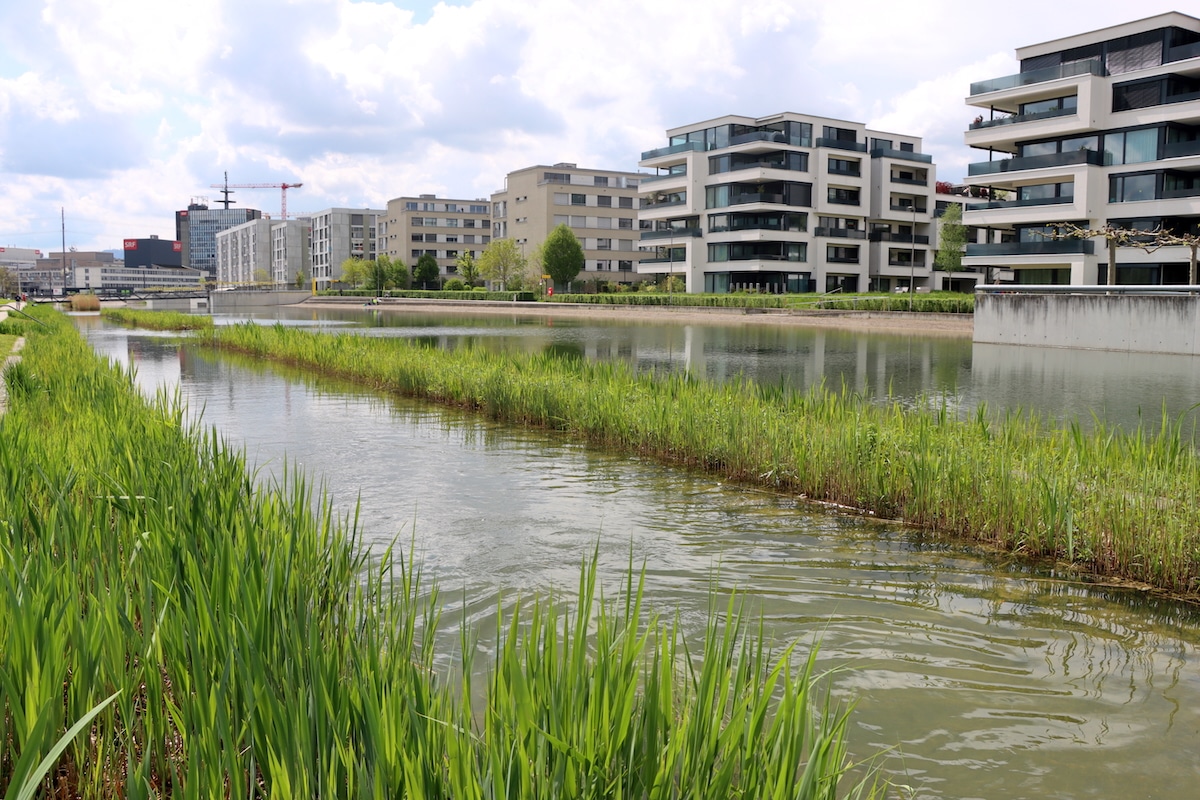Above photo: Alongside agricultural intensification, urbanization is one of the biggest global drivers of changes in land use that affect biodiversity. It often leads to a major shift in species composition. Florian Altermatt.
One of the largest studies ever conducted on biodiversity loss worldwide has revealed that humans are having a severely detrimental impact on global wildlife.
The number of species is declining, as well as the composition of populations.
“Biological diversity is under threat. More and more plant and animal species are disappearing worldwide, and humans are responsible. Until now, however, there has been no synthesis of the extent of human intervention in nature and whether the effects can be found everywhere in the world and in all groups of organisms,” a press release from University of Zurich (UZH) said. “This is because most of the studies conducted to date have only looked at individual aspects. They either examined changes in species diversity over time or were limited to a single location or to specific human impacts.”
To fill in the gaps, a team of scientists from UZH and the Swiss Federal Institute of Aquatic Science and Technology (Eawag) collected data from roughly 2,100 studies comparing biodiversity at nearly 50,000 sites that had been impacted by humans with an equal number of reference locations that remained unaffected.
The studies covered freshwater, marine and terrestrial habitats worldwide, with all groups of organisms — microbes, fungi, plants, invertebrates, birds, fish and mammals — represented.
“It is one of the largest syntheses of the human impacts on biodiversity ever conducted worldwide,” said Florian Altermatt, a UZH professor of aquatic ecology and head of an Eawag research group, in the press release.
The findings, “The global human impact on biodiversity,” were published in the journal Nature and leave no doubt as to the devastation humans are imposing on global biodiversity.
“We analyzed the effects of the five main human impacts on biodiversity: habitat changes, direct exploitation such as hunting or fishing, climate change, pollution and invasive species,” said lead author François Keck, a postdoctoral researcher at Eawag, in the press release. “Our findings show that all five factors have a strong impact on biodiversity worldwide, in all groups of organisms and in all ecosystems.”

The average number of species at affected sites was nearly one-fifth lower than at those that were unaffected. Vertebrates such as amphibians, reptiles and mammals were found that have experienced especially dramatic species loss across all biogeographic regions. These populations have a tendency to be significantly smaller than those of invertebrates, which makes them more vulnerable to extinction.
“Biodiversity change poses a critical threat to human societies from local to global scales, highlighting the urgent need for understanding the complex relationship between human pressures and their effects on ecosystems,” the authors wrote in the findings. “Human pressures, broadly classified in five main types — land-use change, resource exploitation, pollution, climate change and invasive species — can enhance or reduce species diversity locally. Crucially, by impacting biodiversity at local scales, effects of human pressures can similarly impact biodiversity patterns among communities at broader spatial scales.”
In addition to population numbers, species composition is another key aspect of biodiversity. Keck said human pressure is causing a decline in species numbers, as well as a shift in the composition of their communities.
“In high mountain regions, for example, specialized plants are at risk of being displaced by species from lower altitudes as the climate warms. In some circumstances, the number of species at a particular site may remain the same; nevertheless, biodiversity and its ecosystem functions will be affected if, for example, a plant species disappears that has particularly good root systems to protect the soil from erosion,” the press release said.
The largest shifts in the composition of species communities are among microbes and fungi.
“This could be because these organisms have short life cycles and high dispersion rates and therefore respond more quickly,” Keck explained.
The study found that habitat changes and environmental pollution had an exceptionally negative impact on species numbers and composition.
Altermatt said that wasn’t surprising, as habitat changes can often be drastic, as when humans raze a meadow or cut down a forest. Pollution, whether it is accidental, as with an oil spill, or deliberate, as in the spraying of pesticides, introduces destructive substances into habitats that weaken or destroy their organisms.
A third aspect of biodiversity investigated by the team was homogeneity — the similarity of species communities at different sites.
“For example, large-scale, intensive agriculture tends to make landscapes more homogeneous, and the species communities they contain more similar. The effects were mixed, with some studies showing a very strong tendency towards homogenization, and others showing a tendency for species communities to become more diverse, especially at the local level,” the press release said.
The researchers expressed doubt in the latter being a positive sign. They speculated that an uptick in dissimilarities could be a temporary result in severely impacted habitats.
“The human influence that we find is sometimes so strong that there are even signs that could indicate a complete collapse of the species communities,” Altermatt said.
The authors said the findings can serve as benchmarks for conservation efforts and biodiversity research going forward.
“Our findings provide clear indications of which human influences are having the greatest impact on biodiversity,” Keck said. “This also shows what goals need to be set if these trends are to be reversed.”

